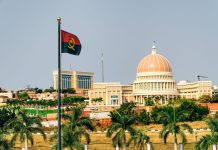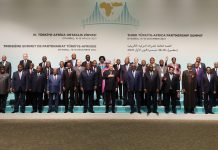Africa-Press – Angola. The National Assembly (AN) approved this Thursday, in general, the Proposed Law on the Political-Administrative Division (DPA), which covers 20 provinces and 325 municipalities and 375 communes.
The document was approved with 101 votes in favor (MPLA and mixed PRS/FNLA parliamentary group), 79 against (UNITA) and two abstentions (PHA), during the 4th Extraordinary Plenary Meeting of the 2nd Legislative Session of the V Legislature.
The Executive’s legislative initiative aims, on the one hand, to promote the balanced development of the territory, bring public services closer to citizens, guarantee the full occupation of the territory and, on the other, rationalize State administration services, increasing their effectiveness, efficiency and equity.
The Diploma foresees the creation of two new territorial units at provincial level, which will result from the division of the province of Moxico (thereby becoming two: Moxico and Cassai-Zambeze) and Cuando Cubango (thereby becoming two: provinces of Cuando and Cubango).
The Bill, which will now be discussed in the specialized committees of the National Assembly, also provides for the suppression of some sub-municipal level districts, the elimination of the distinction between Urban Districts and Communes.
Some of these units rise to municipal level, taking into account geographical and demographic conditions and the need to guarantee effective control of national borders.
With the new Political-Administrative Division, Angola will be made up of 20 (twenty) provinces, 325 (three hundred and twenty-five) municipalities and 375 (three hundred and seventy-five) communes.
The provinces of Uíge, Malanje and Lunda-Norte will have the largest number of communes to bring populations even closer together.
In the case of Luanda, the DPA foresees the creation of new municipalities, namely Kilamba, Estalagem and Calumbo, the latter which will bring together the neighborhoods of Zango 1, 2, 3, 4 and 5.
From an economic and social point of view, this proposed law provides for some benefits such as the reduction of inequalities and poverty rates within the population.
The Proposed Law on the Political-Administrative Division has a preambular part and a dispositive part, systematized into 22 chapters, 40 sections and 514 articles.
On the occasion, the Minister of State and head of the Civil House of the President of the Republic, Adão de Almeida, highlighted the fact that the opposition had demonstrated, throughout the parliamentary debate, an obsession (excessive concern) with the institutionalization of local authorities, which ended for diverting the topic that was on the table.
“When we approached the issue of the political-administrative Division, we did not want to confuse it with the issue of the implementation of local authorities, we are talking about the organization of the territory, which exists both in a scenario of local authorities and in a scenario of local administration of the State”, he explained.
Declarations of vote
Deputy Virgílio Tchiova, from the MPLA parliamentary group, justified his party’s favorable vote by the fact that the Diploma consolidates the process of administrative deconcentration and implements the National Development Plan (PDN) and promotes a greater culture of municipalization of administration activities of State.
According to the deputy, the DPA Bill consolidates the bases for completing the process of administrative decentralization and deconcentration and the institutionalization of local authorities.
He revealed that they voted in favor of the Diploma because it fulfills an electoral promise, that of implementing a new Political Administrative Division that favors solutions capable of increasingly improving the organization and functioning of provinces and municipalities, in order to bring centers closer together of citizens’ administrative political decision-making and reduce regional inequalities.
On the other hand, deputy Américo Chivukuvuku, from UNITA, said that they voted against the DPA Bill because “it is not a priority, urgent, decisive for the efficiency and effectiveness of governance nor important for the country’s development”.
UNITA argues that, under the terms of the Constitution, “what is urgently necessary for the development of the country and for the eradication of regional asymmetries and bringing services closer to citizens is the institutionalization of local authorities in the 164 municipalities of the country and simultaneously”.
Deputy Benedito Daniel, from the PRS-FNLA mixed parliamentary group, recognized the existence of the intrinsic relationship between the territory and the municipality, for whom, over time, the dynamics of demographic, social, cultural and economic development have changed and require that make changes to the political and administrative organization so that this restructuring contributes to reducing demographic pressure on urban areas, among others.
angop
For More News And Analysis About Angola Follow Africa-Press






